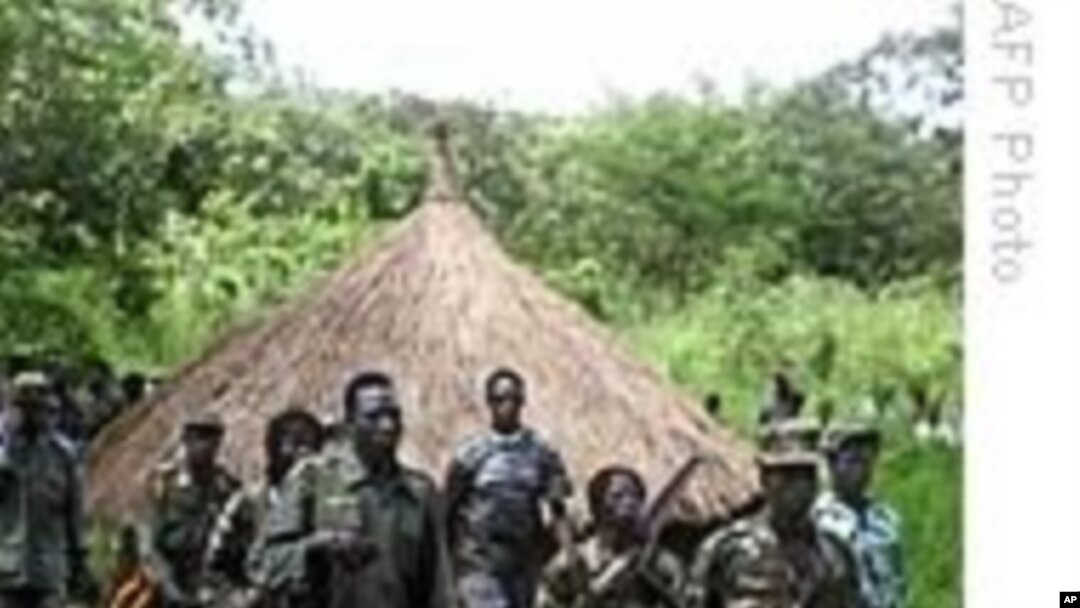Heads of state and international and regional representatives turn their attention to Africa’s 17-million refugees, returnees, and internally displaced persons (IDPs) at Thursday’s African Union heads of state summit in Kampala, Uganda. Of the 20 African leaders invited by Ugandan President Yoweri Museveni, only five attended Tuesday’s opening.
Most notably absent so far is Sudan’s President Omar Hassan al-Bashir, who received an invitation, but is subject to a travel ban by the International Criminal Court. The court has indicted President Bashir for fueling a six-year war against rebels in Sudan’s western Darfur region.
Sudan hosts the world’s highest number of IDPs, an estimated 4.5-million, including 2.7-million in Darfur. Along with more than a million uprooted victims in the Democratic Republic of Congo, Sudan’s refugee problem has been aggravated by military operations of the Ugandan rebel Lord’s Resistance Army (LRA), which for several years obtained arms and assistance from the Khartoum government.
Senior analyst Paul Ronan of the U.S. advocacy group Resolve Uganda says that the Ugandan army continues to pursue LRA fighters in northeastern DRC, but that recent LRA activity also extends into southern Sudan, the Central African Republic, and is believed headed toward Darfur in western Sudan.
“News reports from the region have indicated LRA attacks in the DRC have actually expanded into new areas of northeastern DR Congo….and in south Sudan also, there have been reports of continued abductions, continued killings all attributed to the LRA. So these reports of the LRA being on the run are a bit of an exaggeration,” he said.
Ronan says the reasons why the LRA is reported to be heading north toward Darfur are a subject for conjecture, but he thinks the lure of arms and spoils of war may make the war-torn region attractive to the LRA.
“One of the obvious reasons that Sudan analysts have pointed out in the past couple of weeks is the possibility that the LRA is trying or already has renewed its historical ties with the Sudanese government in Khartoum and is trying to get to Darfur in order to receive new arms or new supplies. There hasn’t been any concrete evidence yet that that’s the case, but it could certainly be a logical explanation. It’s also true that with the LRA being chased by the Ugandan army in three countries now that they see Darfur now as one of the few places in the region where the Ugandan army won’t dare to go to chase them,” he pointed out.
In the absence of President Bashir, Sudan is sending a delegation headed by Interior Minister Eng Abbas Jum’ah and Commissioner for Refugees Muhammad Ahmad al-Aghbash to Kampala. Resolve Uganda’s Paul Ronan says the stepped-up LRA activity in neighboring Sudan is posing a significant threat to thousands of Sudanese civilians, whose humanitarian concerns need to be discussed at this week’s Kampala summit.
“One thing is sure: that wherever the LRA goes, disruption of humanitarian assistance and ordinary people’s lives is sure to follow. And in the past couple of months, as we’ve seen, the LRA get increasingly desperate to supply themselves, they’ve begun to attack more and more humanitarian aid drop-off sites. We’ve seen it in the Congo and most recently in south Sudan. And with such a huge humanitarian aid operation in Darfur, the LRA attacks on humanitarian sites there would definitely be a very major concern,” he warned.
Authorities in Kampala still have the option that if President Bashir’s presence at the summit is urgently needed, he would be able to participate in deliberations through modern tele-conferencing.


